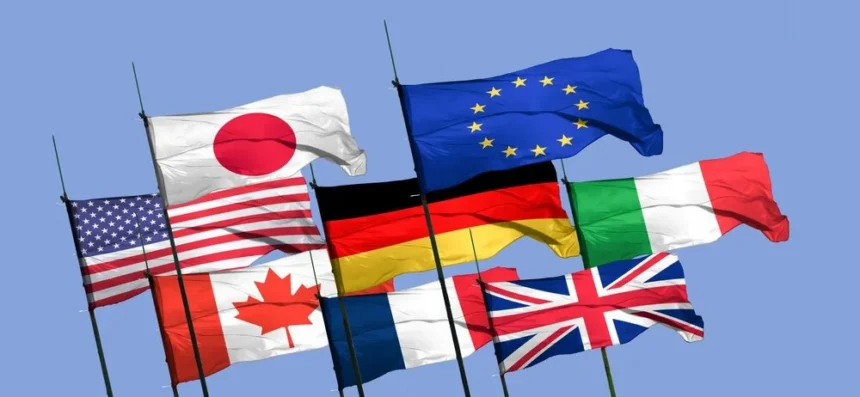The G7 summit in Fiuggi, Italy, wrapped up with leaders from the world’s seven largest democracies bracing for an uncertain future. With Donald Trump poised to reclaim the presidency in January 2025, there are growing concerns about the impact his return will have on international relations, trade, and military support for Ukraine.
As the summit concluded, leaders expressed apprehension over how Trump’s foreign policy, marked by unpredictability and unilateralism, might disrupt the functioning of the G7. While the group has traditionally been a cornerstone of global crisis management, Trump’s return could threaten its cohesion and effectiveness.
Trump’s Return: A Threat to Global Cooperation?
German Foreign Minister Annalena Baerbock voiced concern that Trump’s second term could unravel the G7, which has long served as a forum for managing international crises. “The G7 has proven to be a reliable crisis team,” she said, “but with Trump at the table, it could quickly become a crisis itself.” During his first term, Trump frequently challenged multilateral agreements, criticized European allies, and imposed tariffs, most notably on Canada. These actions sowed discord within the alliance, and with Trump back in power, tensions are expected to escalate.
The summit highlighted the uncertainty surrounding the future of the G7. Trump’s penchant for undermining the “rules-based international order” and his “America First” policies raised alarm bells among leaders, who fear that his approach will weaken the group and threaten global economic stability.
Can US Promises to Allies Be Trusted?
During the summit, US Secretary of State Antony Blinken reassured G7 leaders that the US would continue to support Ukraine in its fight against Russian aggression. However, the sustainability of such commitments remains in question under Trump’s potential leadership. Blinken’s vague responses to questions about future US foreign policy left allies worried about the longevity of American support.
EU High Representative for Foreign Affairs Josep Borrell was more direct, asserting that Europe must remain strategically sovereign and not be dictated to by the US. He strongly rejected Trump’s approach of using tariffs as leverage, warning that a new trade war would harm the global economy—especially the US itself.
The Future of US Aid to Ukraine
One of the most pressing concerns at the G7 summit was the future of American support for Ukraine. Trump has signaled his intention to cut military and financial assistance to Ukraine, a stance that could have dire consequences for the country’s defense against Russia. In response, G7 countries agreed to a $50 billion loan package for Ukraine, backed by frozen Russian assets in Europe, with the US contributing around $20 billion.
Since Russia’s invasion in 2022, the US has provided over $85 billion in military and financial aid to Ukraine, while the EU has contributed around $118 billion. A withdrawal of US support would place a heavy burden on European nations, who are already stretched thin.
Ukraine’s Defense Needs Urgent Attention
Ukraine’s Foreign Minister Dmytro Kuleba attended the summit to outline his country’s urgent defense needs. He highlighted the necessity of advanced weapons systems, including US-made Patriot missiles, to protect against Russia’s expanding missile threat. While Germany pledged additional defense support, the broader G7 response will depend largely on Trump’s policy decisions once in office.
Despite differences within the G7, leaders remained united in their commitment to Ukraine’s sovereignty. Italian Foreign Minister Antonio Tajani emphasized the group’s resolve to secure a “just peace” for Ukraine, free from Russian dictation. “Justice means freedom for Ukraine,” he stated, while also acknowledging that finding a diplomatic solution with Russia remains a complex and distant goal.
The G7’s Next Steps: Unity or Fragmentation?
With Trump’s return to power likely, G7 leaders from Canada, Japan, and Europe are left to consider how best to respond. Some argue that the only viable path forward may be a renewed commitment to unity, particularly if Trump pursues divisive policies that undermine international cooperation.
In her closing remarks, Baerbock suggested that Europe must counteract Trump’s “America First” agenda with a unified “United Europe” approach. As the G7 prepares for Canada to take the helm in 2025, questions remain about whether the group will continue to function effectively in the face of renewed US isolationism.







